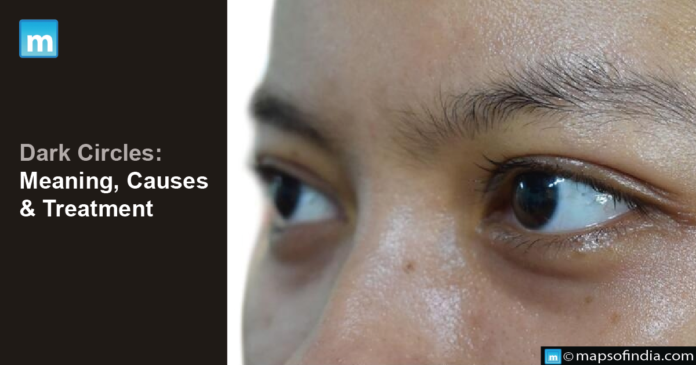Many people get dark under-eye circles, which is a typical problem. They can make someone appear older, unwell, and more worn out than they are. Even though they could appear to be unimportant, dark circles occasionally point to a medical condition.
What are dark circles?
Under the eyes, dark circles are the discolored skin frequently accompanied by bags or puffiness. They can have a range of colors, from bluish-purple to brownish-black, and can be brought on by several different things.
Causes of dark circles
Certain risk factors can increase the likelihood of developing dark circles, including:
- Genetics: Genetics is one of the most common causes of dark circles. If your parents or grandparents have dark circles, you are more likely to have them too.
- Age: Our skin becomes thinner and loses elasticity as we age, making the blood vessels more visible. This can cause dark circles to appear.
- Lack of sleep: Lack of sleep can cause the skin to become dull and pale, making dark circles more noticeable.
- Allergies: Allergies can cause the blood vessels under the eyes to dilate, making the under-eye area appear darker.
- Dehydration: Dehydration can make the skin dull and lifeless, making dark circles more prominent.
- Sun exposure: Exposure to the sun can cause the skin to produce excess melanin, leading to dark circles.
- Iron deficiency: Anemia can result from iron deficiency, leading to pale skin and a darker under-eye area.
- Ethnicity: People with darker skin tones are more prone to developing dark circles.
- Medical Conditions: Certain conditions, such as thyroid disease and eczema, can cause dark circles.
- Lifestyle Factors: Lack of sleep, poor diet, smoking, and alcohol consumption can increase the risk of developing dark circles.
How to fix dark circles?
- Get enough sleep: One of the easiest ways to fix dark circles is to get enough sleep. Adults should aim for 7-8 hours of sleep each night.
- Stay hydrated: Drinking enough water can help keep the skin hydrated, making dark circles less noticeable.
- Manage allergies: If you have allergies, it’s important to manage them properly. This may involve taking antihistamines, avoiding allergens, or using eye drops to reduce redness and irritation.
- Wear sunscreen: Wearing sunscreen can help protect the skin from the damaging effects of the sun, which can cause dark circles to appear.
- Use eye creams: Eye creams containing ingredients like vitamin C, retinol, and caffeine can help reduce the appearance of dark circles.
- Use concealer: Concealer can help cover up dark circles if all else fails. Look for a concealer that matches your skin tone and has a yellow or peach undertone to help counteract the blue or purple tones of the dark circles.
- Medical treatments: In some cases, medical treatments may be necessary to fix dark circles. These can include laser therapy, chemical peels, or dermal fillers.




